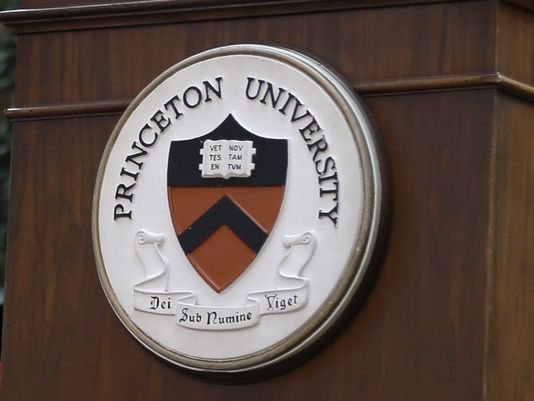The phrase “check your privilege” has become popular among liberals who think that being of a certain race and gender means you inherently didn’t experience the same struggle as other less privileged growing up.
Videos By Rare
One white, male heterosexual student at Princeton, Tal Fortgang, has just turned this notion on its head.
While being told to “check his privilege” many times in his so-far short 8-month Ivy League career, Fortgang responded to the criticism in a scathing column in the The Princeton Tory, that makes you remember to never judge a book by its cover.
…I actually went and checked the origins of my privileged existence, to empathize with those whose underdog stories I can’t possibly comprehend. I have unearthed some examples of the privilege with which my family was blessed, and now I think I better understand those who assure me that skin color allowed my family and I to flourish today.
Perhaps it’s the privilege my grandfather and his brother had to flee their home as teenagers when the Nazis invaded Poland, leaving their mother and five younger siblings behind, running and running until they reached a Displaced Persons camp in Siberia, where they would do years of hard labor in the bitter cold until World War II ended. Maybe it was the privilege my grandfather had of taking on the local Rabbi’s work in that DP camp, telling him that the spiritual leader shouldn’t do hard work, but should save his energy to pass Jewish tradition along to those who might survive. Perhaps it was the privilege my great-grandmother and those five great-aunts and uncles I never knew had of being shot into an open grave outside their hometown. Maybe that’s my privilege.
Or maybe it’s the privilege my grandmother had of spending weeks upon weeks on a death march through Polish forests in subzero temperatures, one of just a handful to survive, only to be put in Bergen-Belsen concentration camp where she would have died but for the Allied forces who liberated her and helped her regain her health when her weight dwindled to barely 80 pounds.
Perhaps my privilege is that those two resilient individuals came to America with no money and no English, obtained citizenship, learned the language and met each other; that my grandfather started a humble wicker basket business with nothing but long hours, an idea, and an iron will—to paraphrase the man I never met: “I escaped Hitler. Some business troubles are going to ruin me?” Maybe my privilege is that they worked hard enough to raise four children, and to send them to Jewish day school and eventually City College.
Perhaps it was my privilege that my own father worked hard enough in City College to earn a spot at a top graduate school, got a good job, and for 25 years got up well before the crack of dawn, sacrificing precious time he wanted to spend with those he valued most—his wife and kids—to earn that living. I can say with certainty there was no legacy involved in any of his accomplishments. The wicker business just isn’t that influential. Now would you say that we’ve been really privileged? That our success has been gift-wrapped?
That’s the problem with calling someone out for the “privilege” which you assume has defined their narrative. You don’t know what their struggles have been, what they may have gone through to be where they are. Assuming they’ve benefitted from “power systems” or other conspiratorial imaginary institutions denies them credit for all they’ve done, things of which you may not even conceive. You don’t know whose father died defending your freedom. You don’t know whose mother escaped oppression. You don’t know who conquered their demons, or may still conquering them now.
The truth is, though, that I have been exceptionally privileged in my life, albeit not in the way any detractors would have it.
Fortgang continues on to describe the privileges in his life, that include his grandparents being able to legally come to America, having an entrepreneurial spirit and a family highly invested in his education.
The student makes a powerful point later.
But far more important for me than his attributes was the legacy he sought to pass along, which forms the basis of what detractors call my “privilege,” but which actually should be praised as one of altruism and self-sacrifice. Those who came before us suffered for the sake of giving us a better life. When we similarly sacrifice for our descendents by caring for the planet, it’s called “environmentalism,” and is applauded. But when we do it by passing along property and a set of values, it’s called “privilege.” (And when we do it by raising questions about our crippling national debt, we’re called Tea Party radicals.) Such sacrifice of any form shouldn’t be scorned, but admired.
[…]
Behind every success, large or small, there is a story, and it isn’t always told by sex or skin color. My appearance certainly doesn’t tell the whole story, and to assume that it does and that I should apologize for it is insulting. While I haven’t done everything for myself up to this point in my life, someone sacrificed themselves so that I can lead a better life. But that is a legacy I am proud of.
I have checked my privilege. And I apologize for nothing.
For the whole article, read it at The Princeton Tory.
(H/T The College Fix)

